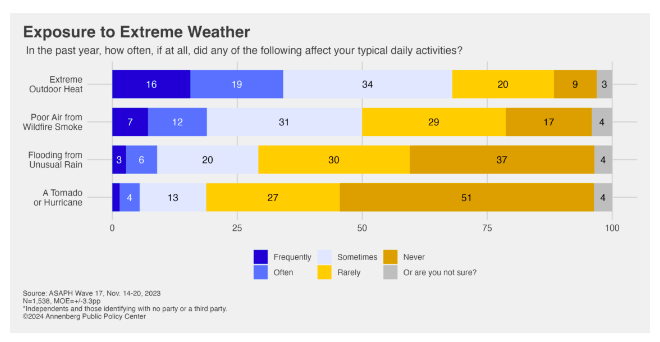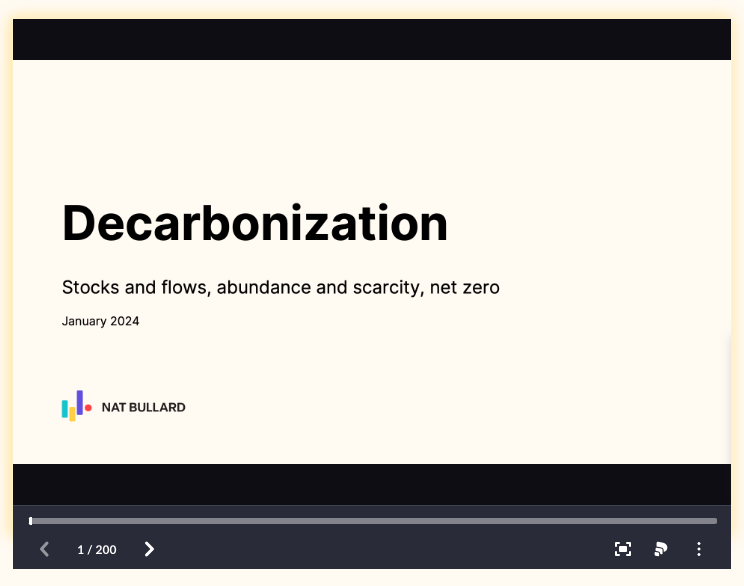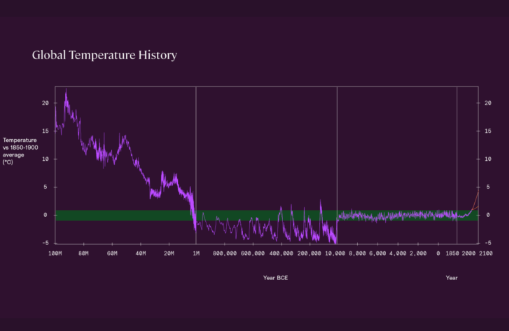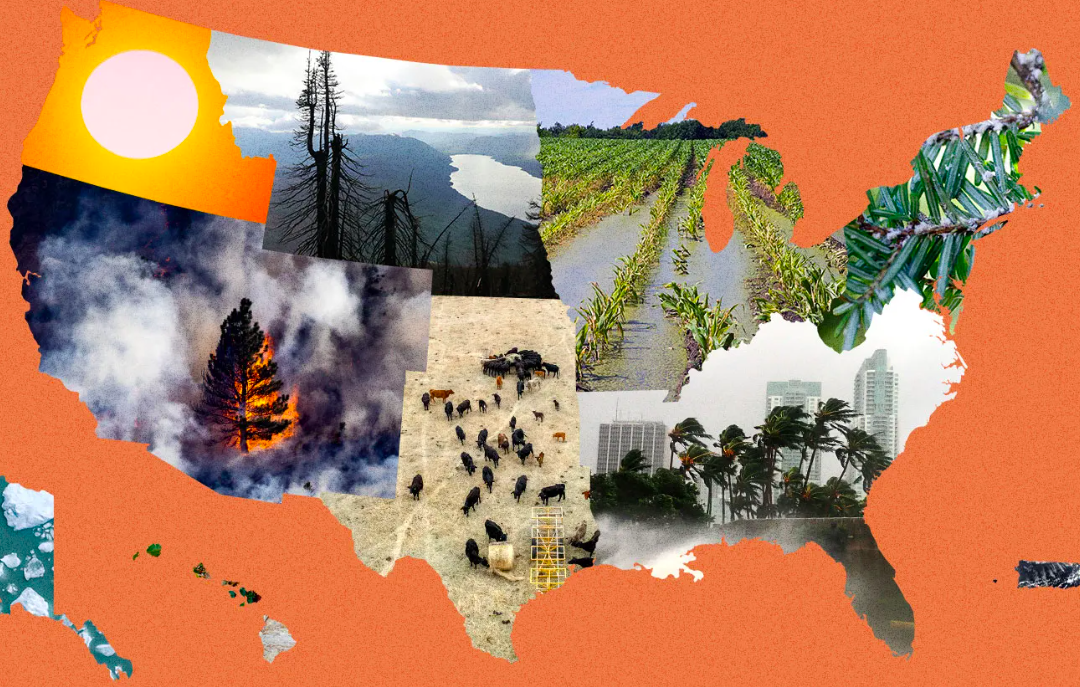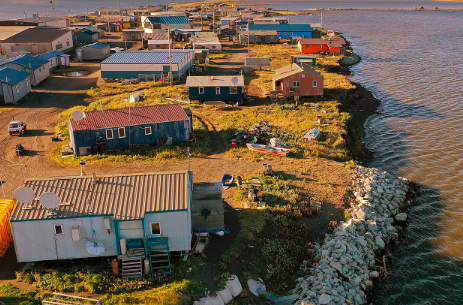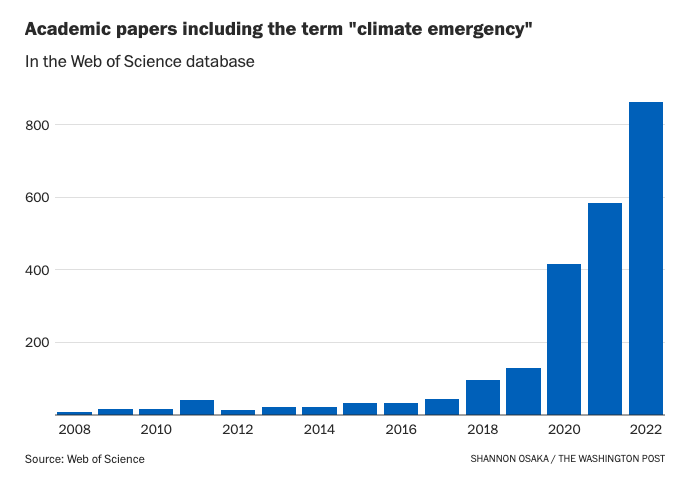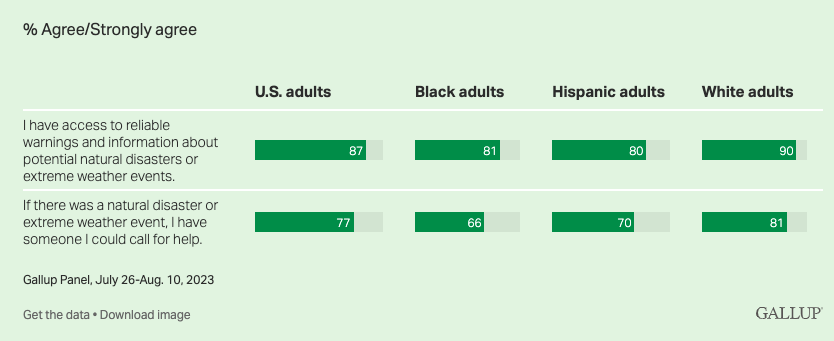Resources
Search below for resources covering the intersection of climate engagement, social science and data analytics.
RESULTS
Environmental Polling Roundup - April 5th, 2024
This post includes climate and environment headlines, data points, and key takeaways from recent public polls - including new polling on extreme weather, climate change, and plastic pollution.
HEADLINES
Experiencing Extreme Weather Predicts Support for Policies to Mitigate Effects of Climate Change
Americans who report experiences with extreme weather are more likely to support pro-climate policies. 62% of Americans support tax credits for families who install rooftop solar or battery storage in their homes. 62% of Americans support increasing investment in energy-efficient forms of public transportation. 60% of Americans support grants to communities to protect them from the impacts of climate change, including drought, heat, and extreme weather. 57% of Americans support forgivable loans for rural communities to improve their energy efficiency.
Annual Presentation
This resource includes very comprehensive visual descriptions of climate science and clean energy. Nat Bullard’s annual presentation covers the state of decarbonization told with climate, capital markets, technology, and sector data. A coherent view of the future begins with the clearest possible view of the present. This webpage includes 2024 and 2023 presentations.
WSP Energy Future Report: Electric Grid Reliability Worries Americans
Americans are widely concerned about aging and unreliable electric grid infrastructure. Grid reliability, along with health and jobs, is a key argument in favor of transitioning to clean energy.
Probable Futures
This platform offers interactive maps, science, historical context, and stories to help us all envision a range of climate futures. This is an effort to enable and encourage people to have practical conversations and make informed decisions about the future in a changing climate. We seek to build bridges between cultures, organizations, technology, design, and science. This freely accessible platform was created so that everyone, everywhere in the world, can do the same.
The Fifth National Climate Assessment, released on Tuesday by the Biden administration, is unique for its focus on the present. Like previous versions, it looks at how rising temperatures will change the United States in decades to come, but it also makes clear that the rising seas, major hurricanes, and other disastrous consequences of climate change predicted in prior reports have begun to arrive. The effects are felt in every region. The report outlines steps every level of government can take to combat the climate crisis. And it takes stock of progress that has been made over the past four years. Despite this progress, climate impacts — oppressive heat domes in the Southeast that linger for weeks on end, record-breaking drought in the Southwest, bigger and more damaging hurricanes in the Atlantic basin, wildfires of unusual duration and intensity along the West Coast — are accelerating. The Grist staff, located all over the country, reviewed the assessment to provide you with the most important takeaways for your region.
New US climate report says land theft and colonization amplify the climate crisis for Indigenous peoples
Indigenous self-determination is a key climate solution — if the federal government can get behind it. The latest National Climate Assessment cites a 2021 study that concluded that Indigenous peoples in the United States lost 99 percent of their territories through colonization, and that the lands that they were forced to move to face higher wildfire risk and worse drought than their traditional homelands. According to the authors, Indigenous peoples across the continental U.S. and its island holdings hail from more than 700 tribes and communities, and while each community has a different relationship with the federal government, all share similar experiences of colonization through stolen land, cultural assimilation, and persistent marginalization. The report also detailed problems with the National Flood Insurance Program, a federal insurance program managed by the Federal Emergency Management Agency that helps homeowners insure against the risk of flooding, something that many insurance companies won’t cover. The program is supposed to help communities mitigate flood risk, but the report found that its implementation in Native communities has been flawed and ineffective.
Environmental Polling Roundup - November 3rd, 2023
This post includes climate and environment headlines, data points, and key takeaways from recent public polls - including new polling about fossil fuel accountability, publicly owned utilities, and frontline communities’ vulnerability to extreme weather.
Why many scientists are now saying climate change is an all-out ‘emergency’
Terms like “climate emergency” or “climate and ecological crisis” are increasing in usage, particularly among scientists. As recently as 2015, only 32 papers in the Web of Science research database included the term “climate emergency.” In 2022, 862 papers contained the phrase.
Poll: Black, Hispanic Americans More Vulnerable to Extreme Weather
Black and Hispanic Americans feel particularly vulnerable to extreme weather, reporting less confidence in their local governments and less preparedness in their communities. Wide majorities of all racial and ethnic groups “agree” or “strongly agree” that they have access to reliable warnings and information about potential natural disasters and that they have someone they can call for help in the event of extreme weather. Still, White Americans exceed both Black and Hispanic Americans by about 10 percentage points on each measure. Between 53% and 56% of Black and Hispanic adults agree they could recover and rebuild, have the resources to do so or have taken steps to prepare their household for a natural disaster or extreme weather event. Meanwhile, between 65% and 72% of White Americans agree across these measures -- indicating their greater degree of preparedness and ability to recover.
Pagination
- Page 1
- Next page
